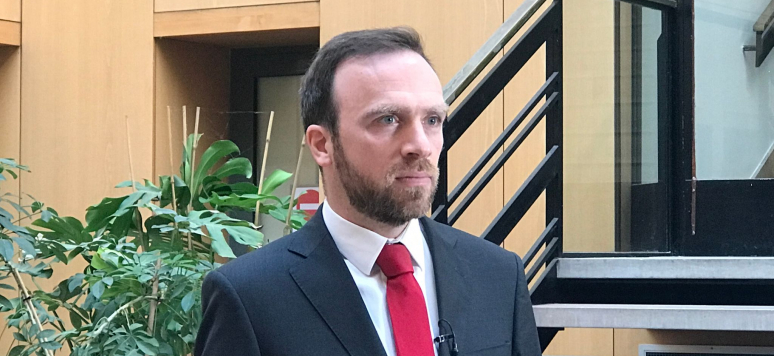L'Ifri dans les médias - Paris attacks: Survivors hope for justice as France's biggest criminal trial in history begins

"Still now I have the images of the corpses next to my feet": Olivier Laplaud and his wife were in the Bataclan enjoying themselves amongst a crowd of 1,500 people when everything changed in an instant.
Survivors and relatives of those who lost their lives during the terrorists attacks in Paris in November 2015 are hoping for justice as France's biggest criminal trial in history begins.
Members of an IS cell armed with assault weapons and explosive vests targeted a football stadium, bars and cafes and the Bataclan music venue, killing 130 people.
Olivier Laplaud and his wife were in the Bataclan that night enjoying themselves amongst a crowd of 1,500 people. But in an instant he told us things changed.
He said: "We were dancing on the balcony and shouting and laughing and singing. It was really a good mood."
But then he says: "We heard a very loud noise that was covering the entire music. And it was really loud. I am a musician and I play the guitar and so my first thought was that the speaker has just broken."
[...]
Central to the hearing will be French citizen Salah Abdeslam who prosecutors say is the sole survivor of the IS terrorists who killed and maimed on a horrendous scale in Paris.
He allegedly ditched his explosive vest and it would be five months before he was arrested in Brussels.
His childhood friend Mohamed Abrini - who is believed to have driven Abdeslam to from Paris - was later caught on camera during the attacks on Brussels airport and subways.
Another friend, Abdelhamid Abaaoud - said to be the mastermind of the cell - was killed in a raid on an apartment block in the St Denis area of Paris five days after the attacks.
-
Marc Hecker who is a terrorism expert and director of research at the French Institute for International Relations, tells us: "Actually, homegrown terrorism has become the norm over the past 20 years. And that's not actually the main surprise here.
"The main characteristics of this trial are obviously the scale of the attack but also the fact that these young people, being born and raised in France, travelled to Syria and then got a real, almost professional paramilitary training and then were able to come back to Europe and perpetrate those very deadly attacks."
He says France has to examine the reasons why young men become radicalised. It has to be addressed because the numbers are growing.
He said: "We have a database in France of radicalised individuals that was created in 2015. And actually it started growing and growing. And now there are approximately 23,000 individuals in this database.
"And amongst these 23,000, you have 8,000 individuals who are actively surveilled and monitored by the intelligence agency. That's a lot. You cannot have a policeman behind each of these individuals."
[...]
> Read the article on Sky News [1] website
